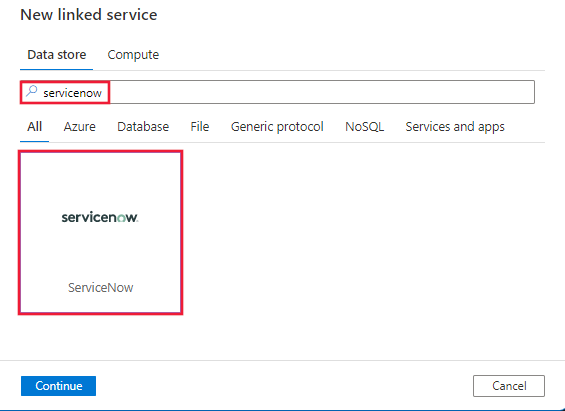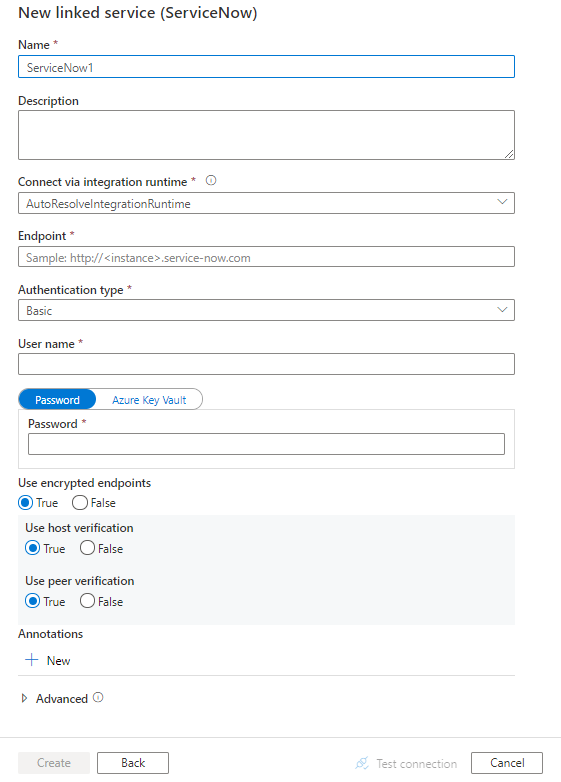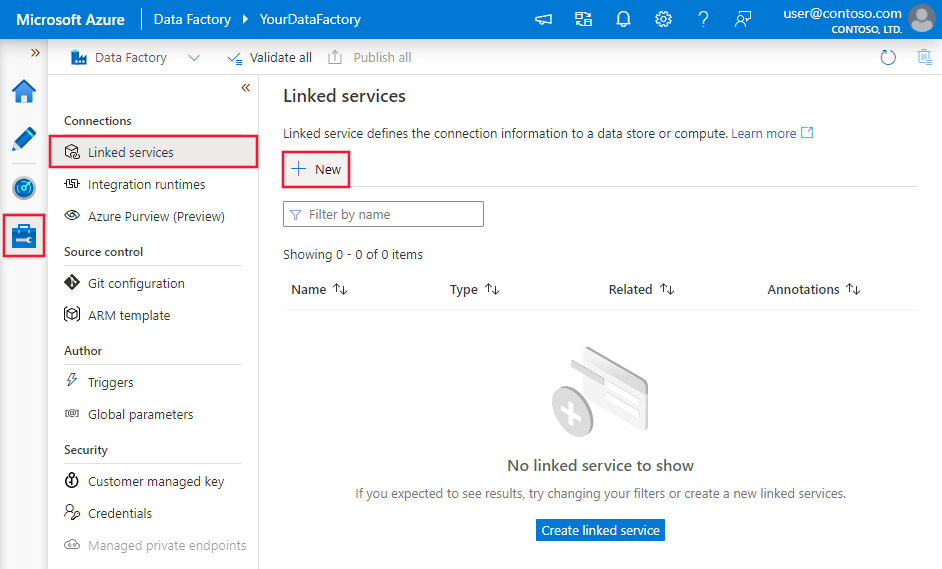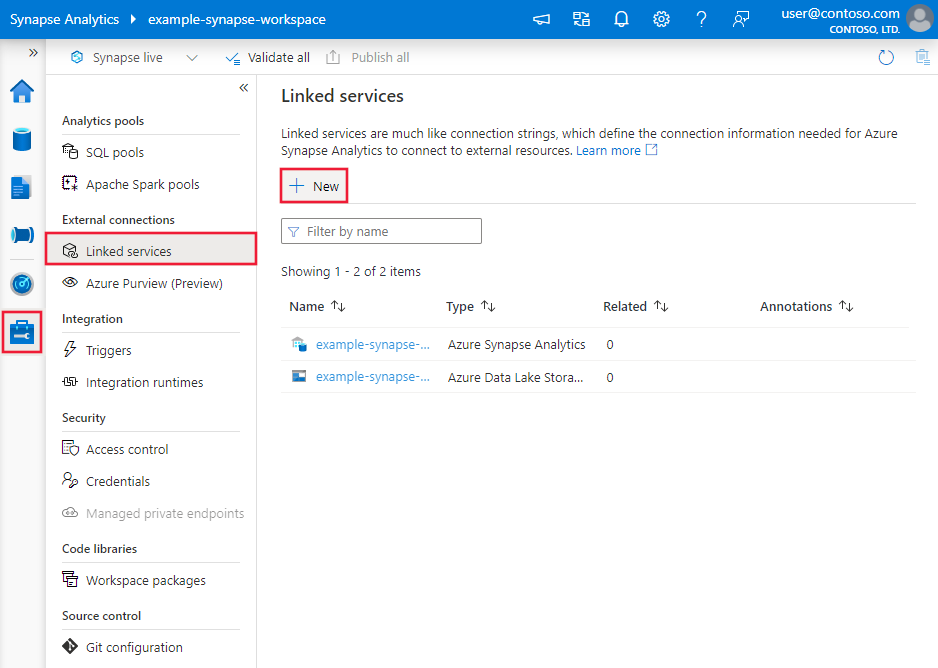Copy data from ServiceNow using Azure Data Factory or Synapse Analytics
APPLIES TO:  Azure Data Factory
Azure Data Factory  Azure Synapse Analytics
Azure Synapse Analytics
Tip
Try out Data Factory in Microsoft Fabric, an all-in-one analytics solution for enterprises. Microsoft Fabric covers everything from data movement to data science, real-time analytics, business intelligence, and reporting. Learn how to start a new trial for free!
This article outlines how to use the Copy Activity in Azure Data Factory and Synapse Analytics pipelines to copy data from ServiceNow. It builds on the copy activity overview article that presents a general overview of copy activity.
Supported capabilities
This ServiceNow connector is supported for the following capabilities:
| Supported capabilities | IR |
|---|---|
| Copy activity (source/-) | ① ② |
| Lookup activity | ① ② |
① Azure integration runtime ② Self-hosted integration runtime
For a list of data stores that are supported as sources/sinks, see the Supported data stores table.
The service provides a built-in driver to enable connectivity. Therefore you don't need to manually install any driver using this connector.
Getting started
To perform the Copy activity with a pipeline, you can use one of the following tools or SDKs:
- The Copy Data tool
- The Azure portal
- The .NET SDK
- The Python SDK
- Azure PowerShell
- The REST API
- The Azure Resource Manager template
Create a linked service to ServiceNow using UI
Use the following steps to create a linked service to ServiceNow in the Azure portal UI.
Browse to the Manage tab in your Azure Data Factory or Synapse workspace and select Linked Services, then click New:
Search for ServiceNow and select the ServiceNow connector.

Configure the service details, test the connection, and create the new linked service.

Connector configuration details
The following sections provide details about properties that are used to define Data Factory entities specific to ServiceNow connector.
Linked service properties
The following properties are supported for ServiceNow linked service:
| Property | Description | Required |
|---|---|---|
| type | The type property must be set to: ServiceNow | Yes |
| endpoint | The endpoint of the ServiceNow server (http://<instance>.service-now.com). |
Yes |
| authenticationType | The authentication type to use. Allowed values are: Basic, OAuth2 |
Yes |
| username | The user name used to connect to the ServiceNow server for Basic and OAuth2 authentication. | Yes |
| password | The password corresponding to the user name for Basic and OAuth2 authentication. Mark this field as a SecureString to store it securely, or reference a secret stored in Azure Key Vault. | Yes |
| clientId | The client ID for OAuth2 authentication. | No |
| clientSecret | The client secret for OAuth2 authentication. Mark this field as a SecureString to store it securely, or reference a secret stored in Azure Key Vault. | No |
| useEncryptedEndpoints | Specifies whether the data source endpoints are encrypted using HTTPS. The default value is true. | No |
| useHostVerification | Specifies whether to require the host name in the server's certificate to match the host name of the server when connecting over TLS. The default value is true. | No |
| usePeerVerification | Specifies whether to verify the identity of the server when connecting over TLS. The default value is true. | No |
Example:
{
"name": "ServiceNowLinkedService",
"properties": {
"type": "ServiceNow",
"typeProperties": {
"endpoint" : "http://<instance>.service-now.com",
"authenticationType" : "Basic",
"username" : "<username>",
"password": {
"type": "SecureString",
"value": "<password>"
}
}
}
}
Dataset properties
For a full list of sections and properties available for defining datasets, see the datasets article. This section provides a list of properties supported by ServiceNow dataset.
To copy data from ServiceNow, set the type property of the dataset to ServiceNowObject. The following properties are supported:
| Property | Description | Required |
|---|---|---|
| type | The type property of the dataset must be set to: ServiceNowObject | Yes |
| tableName | Name of the table. | No (if "query" in activity source is specified) |
Example
{
"name": "ServiceNowDataset",
"properties": {
"type": "ServiceNowObject",
"typeProperties": {},
"schema": [],
"linkedServiceName": {
"referenceName": "<ServiceNow linked service name>",
"type": "LinkedServiceReference"
}
}
}
Copy activity properties
For a full list of sections and properties available for defining activities, see the Pipelines article. This section provides a list of properties supported by ServiceNow source.
ServiceNow as source
To copy data from ServiceNow, set the source type in the copy activity to ServiceNowSource. The following properties are supported in the copy activity source section:
| Property | Description | Required |
|---|---|---|
| type | The type property of the copy activity source must be set to: ServiceNowSource | Yes |
| query | Use the custom SQL query to read data. For example: "SELECT * FROM Actual.alm_asset". |
No (if "tableName" in dataset is specified) |
Note the following when specifying the schema and column for ServiceNow in query, and refer to Performance tips on copy performance implication.
- Schema: specify the schema as
ActualorDisplayin the ServiceNow query, which you can look at it as the parameter ofsysparm_display_valueas true or false when calling ServiceNow REST APIs. - Column: the column name for actual value under
Actualschema is[column name]_value, while for display value underDisplayschema is[column name]_display_value. Note the column name need map to the schema being used in the query.
Sample query:
SELECT col_value FROM Actual.alm_asset
OR
SELECT col_display_value FROM Display.alm_asset
Example:
"activities":[
{
"name": "CopyFromServiceNow",
"type": "Copy",
"inputs": [
{
"referenceName": "<ServiceNow input dataset name>",
"type": "DatasetReference"
}
],
"outputs": [
{
"referenceName": "<output dataset name>",
"type": "DatasetReference"
}
],
"typeProperties": {
"source": {
"type": "ServiceNowSource",
"query": "SELECT * FROM Actual.alm_asset"
},
"sink": {
"type": "<sink type>"
}
}
}
]
Performance tips
Schema to use
ServiceNow has 2 different schemas, one is "Actual" which returns actual data, the other is "Display" which returns the display values of data.
If you have a filter in your query, use "Actual" schema which has better copy performance. When querying against "Actual" schema, ServiceNow natively support filter when fetching the data to only return the filtered resultset, whereas when querying "Display" schema, ADF retrieve all the data and apply filter internally.
Index
ServiceNow table index can help improve query performance, refer to Create a table index.
Lookup activity properties
To learn details about the properties, check Lookup activity.
Related content
For a list of data stores supported as sources and sinks by the copy activity, see supported data stores.
Feedback
Coming soon: Throughout 2024 we will be phasing out GitHub Issues as the feedback mechanism for content and replacing it with a new feedback system. For more information see: https://aka.ms/ContentUserFeedback.
Submit and view feedback for

